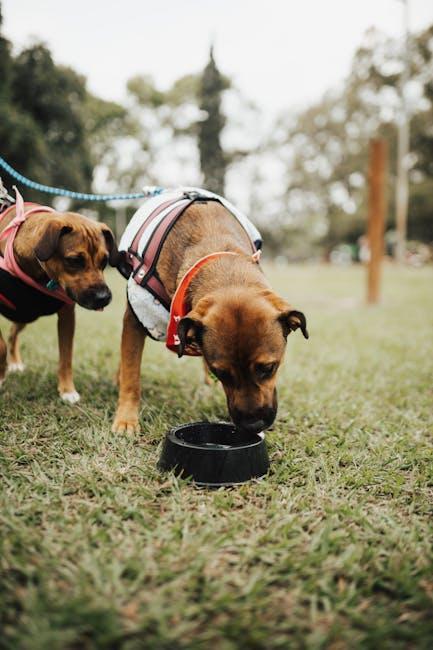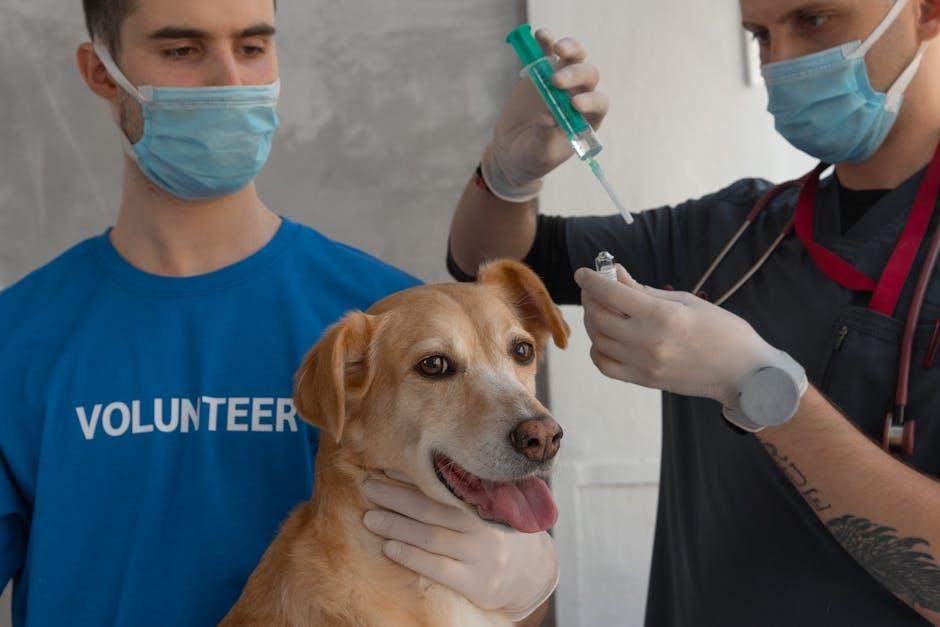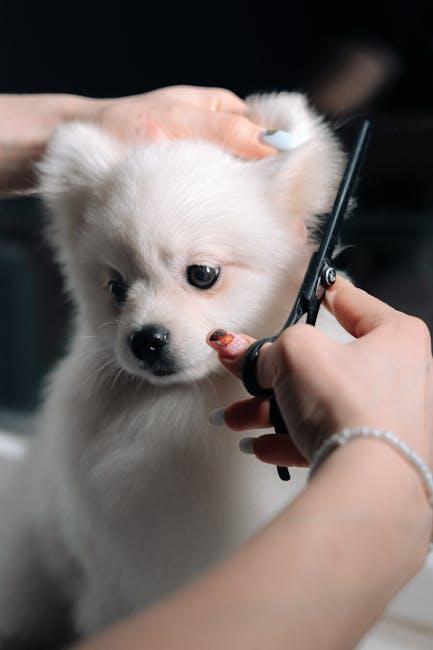Welcoming a new puppy into your home is an exciting and joyful experience, but it also comes with a set of responsibilities that are crucial for ensuring your furry friend grows up healthy and happy. Just like humans, puppies are prone to a variety of health issues that, if left unaddressed, can lead to more serious problems down the road. Fortunately, with regular care and attention, many of these common health concerns can be effectively prevented. In this guide, we’ll explore practical steps and essential tips to help you safeguard your puppy’s well-being. From understanding the importance of vaccinations to establishing a balanced diet and routine vet visits, we’ll provide you with the knowledge and confidence needed to nurture your puppy through their formative years. Let’s embark on this journey together, ensuring your puppy enjoys a vibrant and playful life by your side.
Understanding Your Puppys Nutritional Needs
Ensuring your puppy receives the right balance of nutrients is crucial for their growth and overall health. Puppies have unique dietary requirements compared to adult dogs, needing more protein, fats, and certain vitamins to support their rapid development. When selecting a diet, consider the following essentials:
- High-quality protein: Essential for muscle development and energy, aim for a diet where protein is a primary ingredient.
- Healthy fats: These provide energy and help in the absorption of vitamins. Look for sources like fish oil or chicken fat.
- Calcium and phosphorus: Vital for bone growth, ensure these minerals are in the right ratio to prevent skeletal issues.
- Antioxidants and vitamins: Support your puppy’s immune system with a diet rich in vitamins E and C.
Regularly consult with your veterinarian to tailor a feeding plan that aligns with your puppy’s specific needs, breed, and activity level. Providing a nutritionally balanced diet not only fosters optimal growth but also mitigates potential health problems down the road.

Creating a Safe and Stimulating Environment
Ensuring your puppy grows in a secure and enriching environment is crucial for their well-being. Safety is the cornerstone of a healthy home for your furry friend. Begin by puppy-proofing your home, much like you would for a curious toddler. Keep electrical cords out of reach, secure cabinets containing cleaning products, and remove small objects that could be choking hazards. It’s also important to provide a safe space, like a crate or a designated puppy area, where they can retreat when they need comfort or downtime.
Equally important is a stimulating environment that caters to your puppy’s mental and physical needs. Engage their curious minds with a variety of toys and activities. Consider including:
- Interactive toys that challenge their problem-solving skills.
- Chew toys to satisfy their teething instincts.
- Frequent play sessions that promote exercise and bonding.
- Exposure to different textures, sounds, and sights to foster socialization.
By balancing safety with stimulation, you create a nurturing habitat that supports your puppy’s health and happiness.

Establishing a Consistent Veterinary Check-up Routine
Ensuring your puppy’s health starts with establishing a routine for veterinary check-ups. Regular visits to the vet are essential in catching potential health issues early, allowing for timely intervention. During these check-ups, your veterinarian will perform a thorough examination, including monitoring growth, checking for parasites, and administering necessary vaccinations. A consistent schedule not only helps in keeping your puppy healthy but also builds a trusting relationship between your pup and the vet, making future visits smoother.
Here are some tips to help you maintain a consistent veterinary routine:
- Schedule regular appointments: Aim for at least two vet visits in the first year, adjusting based on your vet’s recommendations.
- Keep a health diary: Document vaccinations, weight changes, and any health concerns to discuss during visits.
- Set reminders: Use calendar alerts or mobile apps to ensure you never miss an appointment.
- Budget for care: Allocate funds monthly to cover the costs of check-ups and any unforeseen treatments.

Promoting Good Hygiene and Grooming Practices
Ensuring your puppy is well-groomed and maintains good hygiene is crucial for their overall health and happiness. Establishing a routine that includes regular baths, nail trims, and ear cleaning can prevent a host of health issues. Here are some key practices to incorporate into your puppy care routine:
- Regular Baths: Use a gentle, puppy-friendly shampoo to keep your puppy’s coat clean and free of dirt and parasites. Aim for a bath every 4-6 weeks, or more often if they get particularly dirty.
- Nail Trimming: Keep your puppy’s nails trimmed to prevent discomfort and potential injuries. If you’re unsure about doing it yourself, a vet or professional groomer can help.
- Ear Cleaning: Check your puppy’s ears weekly for dirt, wax, or signs of infection. Use a vet-approved ear cleaner and cotton balls to gently clean the outer ear.
- Brushing Teeth: Dental health is often overlooked but crucial. Use a puppy toothbrush and toothpaste to brush their teeth regularly, preventing plaque buildup and bad breath.
By integrating these grooming habits into your routine, you not only enhance your puppy’s well-being but also strengthen your bond through these caring interactions. Always use products that are specifically designed for puppies to ensure their safety and comfort.
















